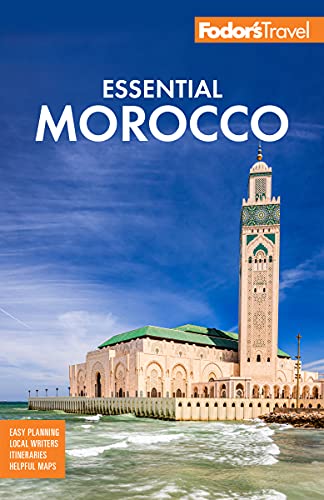Eating Out
Moroccan cuisine is delectable. Dining establishments range from outdoor food stalls to elegant and disproportionately expensive restaurants, with prices approaching those of Europe. Simpler, cheaper restaurants abound. Between cities, roadside restaurants commonly offer delicious tagines, couscous, or grilled kebabs with bread and salad; on the coast, charcoal-grilled or fried fish is an excellent buy, and you can often choose your meal from the daily catch. Marrakesh and Fez are the places for wonderful Moroccan feasts in fairy-tale surroundings, and Casablanca has a lively and diverse dining scene. The listed restaurants represent the best in each price range and cuisine type.
Meals and Mealtimes
Moroccan hotels normally serve a Continental breakfast (petit déjeuner continental), often included in the room rate. If not, you can buy an equivalent meal at any of numerous cafés at a much lower price. The more expensive hotels have elaborate buffets. Hotel breakfasts are usually served from 7 to 10 or 10:30. Lunch, typically the most leisurely meal of the day, is served between noon and 2:30. Hotels and restaurants begin dinner service at 7:30, though crowds are on the thin side until 8:30 or 9. In a Moroccan home you probably won't sit down to eat until 9 or 10 pm. Restaurants stay open later in the more cosmopolitan city centers.
Lunch (déjeuner) in Morocco tends to be a large meal, as in France. A typical lunch menu consists of salad, a main course with meat and vegetables, and fruit. In restaurants this is generally available à la carte. On Friday the traditional lunch meal is a heaping bowl of couscous topped with meats and vegetables in a light bouillon.
At home, people tend to have afternoon mint tea, then a light supper, often with soup. Dinner (diner in French) in international restaurants is generally à la carte; you may select as light or heavy a meal as you like. Many of the fancier Moroccan restaurants serve prix-fixe feasts, with at least three courses and sometimes upward of five. If you're a vegetarian or have other dietary concerns, state this when you make a reservation; many restaurants will prepare special dishes with advance notice.
Lunch and dinner are often served communal-style, on one big platter. Moroccans use their right hands to sop up the juices in these dishes with bread. Bread is used as an all-purpose utensil to pull up little pieces of vegetables and meat. In restaurants bread will always be offered in a basket. Utensils will be offered to foreigners. All restaurants, no matter how basic, have sinks for washing hands before and after your meal.
Unless otherwise noted, the restaurants listed are open daily for lunch and dinner.
Sunday is the most common day for restaurant closings.
During Ramadan, everything changes. Many cafés and nearly all restaurants are closed during the day; the ftour (as it's known in Morocco, also known as iftar) or "break fast," is served precisely at sunset. Many people stay up for an additional meal, the suhour, before sunrise. Hotels and tourist-oriented restaurants continue to serve meals to non-Muslim guests as usual, but don't be surprised if there's a slight break in service at sunset when the staff have their meal.
Paying
Only the pricier restaurants take credit cards; MasterCard and Visa are the most widely accepted. Outside the largest cities you'll rarely be able to use your credit card.
Reservations and Dress
Reservations are generally a good idea at more popular spots, but might not be possible at places on the cheaper end of the scale: we mention them only when they're essential or not accepted. Book as far ahead as possible, and reconfirm as soon as you arrive. Jacket and tie are never required.
Wines, Beer, and Spirits
Although alcohol is forbidden by Islam, Morocco produces red, white, rosé, and gris wines in the Meknès vicinity, as well as near Essaouira, and the national beer is Flag Special; Heineken is produced under license in Casablanca. More expensive restaurants and some hotels and bars aimed at tourists are licensed to serve alcohol. Supermarkets like Carrefour and Acima sell alcohol to foreigners with proper identification (except during Ramadan, when liquor sections are usually closed). Bottle shops in small towns also sell beer and spirits.




